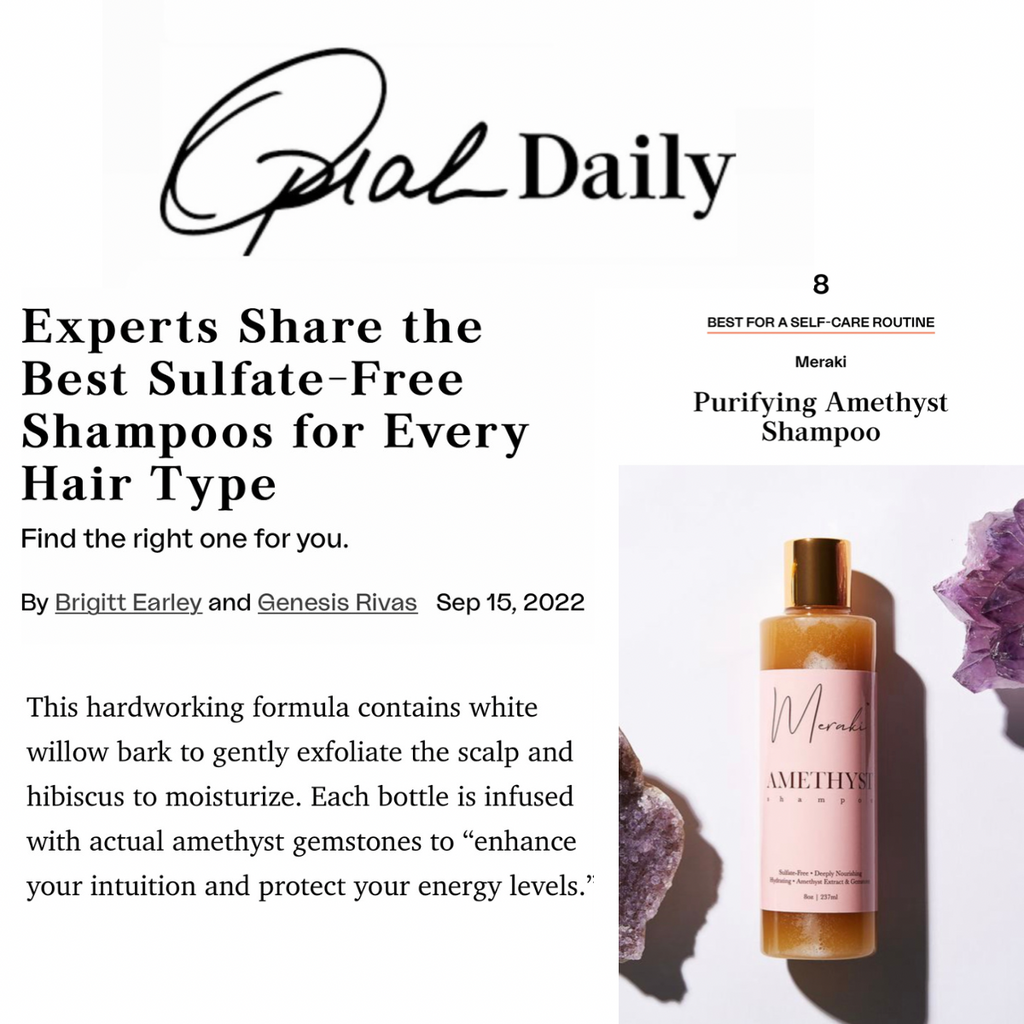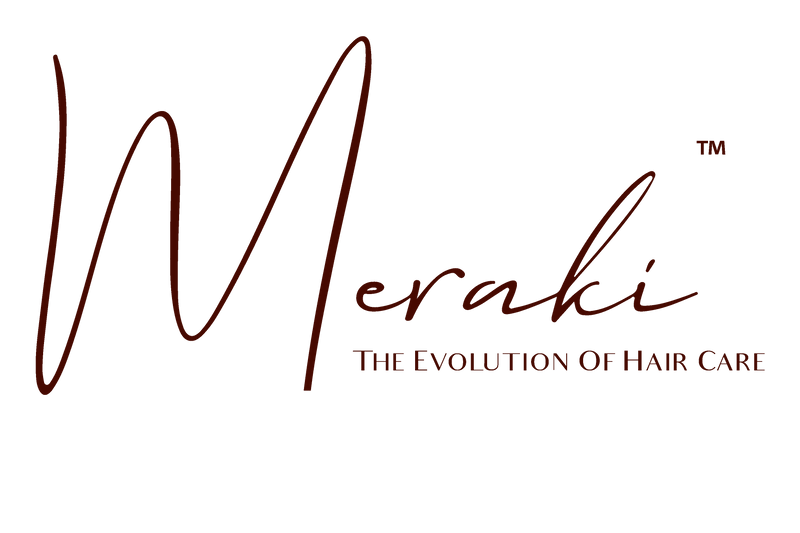What are Sulfates? And How Do They Affect Your Hair And Scalp?

What are Sulfates? And How Do They Affect Your Hair And Scalp?
Our beloved Sulfate free Amethyst shampoo was just named on of the best sulfate- dress shampoos by Oprah Daily!!
Our skin and hair are part of our natural living ecosystem known as the biome – and sulfates disrupt its delicate balance. Here is everything you need to know about sulfates and why you should care if your shampoo is sulfate free!!
Sulfates are aggressive detergents made of sulfur-containing mineral salts. The most common are Sodium Lauryl Sulfate (SLS) and Sodium Laureth Sulfate (SLES). First introduced into modern hair care in the 1930’s, sulfates revolutionized the health and beauty industry. Prior to their introduction, people relied on simple (but not always effective) soaps and other methods to clean their skin and hair. In comparison, sulfates were powerful, inexpensive and easy to acquire. They were responsible for the foaming lather we’ve come to associate with being clean. But now that it’s one of the most common chemicals used in our households, we are beginning to understand that sulfates have an impact on our health and beauty.
Sulfates and Your Hair and Scalp
Our skin and hair are part of our natural living ecosystem known as the biome – and sulfates disrupt its delicate balance. Here’s how:
- Sulfates wash away the natural anti-microbial peptides, proteins, and water-proofing oils our biomes create. Without these health-preserving substances, our hair and scalp are stripped of vital moisture, exposed to harmful microbes, allergens and environmental pollution and vulnerable to damage, infection and illness.
- Sulfates lift the cuticle of the hair. The outermost layer of the hair shaft is a series of hard-shelled, overlapping hair cells called the cuticle. They lay flat, like shingles on a roof. Owing to the reduced surface tension, sulfates work their way under the cuticle, making it lift and buckle. This exposes the cortex of the hair to moisture, which causes frizz, or to arid air that can cause dryness. The compromised cuticle and cortex weakens the entire hair strand, making it dull and prone to damage, breakage and split ends.
- Sulfates make your hair take longer to dry. When the cuticle is lifted, more moisture is absorbed into the cortex, which then takes up to twice as long to dry. If you are using a hair dryer, that’s twice as much heat exposure on an already-compromised hair strand.
- Sulfates leave an anionic charge. Sulfates have a negative electric charge – and that charge remains on your hair and scalp when you rinse the shampoo away. This leaves a dulling residue and can cause static and flyaways. To neutralize this film, the hair must then be coated with a synthetic, silicone-based conditioner (more chemicals), which masks the damage with an artificial shine.
- Sulfates cause scalp irritation.Since sulfates strip the natural lipids off the scalp, its natural water barrier is broken. Chemicals from products can then permeate the top layers of skin, causing irritation and inflammation. Meanwhile, the underlying layers of skin are exposed to pathogens (disease-causing bacteria) that otherwise wouldn’t be able to get there.
- Sulfates cause follicle stress. Each hair follicle is covered by something called a “lipid cap.” Sulfates remove this protective cap, exposing the good microbiota that live within to the atmosphere. Since they are anaerobic, these good bacteria die, and bad bacteria have direct access to a now undefended follicle.
Health
SLS and SLES can irritate
eyes, skin, and lungs, especially
with long-term use. SLES can also
be contaminated with a substance
called 1.4-dioxane, which is known
to cause cancer in laboratory
animals. This contamination occurs
during the manufacturing process.
Enviorment:
Sulfates derived from petroleum are concerning because of ithe long-term side effects of sulfate production. Petroleum products are associated with climate change, pollution, and greenhouse gases.
Testing on animals:
Many products
with sulfates are tested on animals
to measure the level of irritation to
people's skin, lungs, and eyes. For
this reason, many oppose using
consumer products that contain SLS
and SLES.
To conclude please continue to research the ingredients in your cosmetic products and continue to educate yourself! There are apps available for android and iphone users that you can download like Clearya and Think Dirty that have already done the work for you! You can also find and download a full list of toxic ingredients on the Campaign For Safe Cosmetics website!
Our Clean Beauty Pledge To You: At Meraki, we are committed to a high level of health and safety in our products that exceeds well beyond the legal standard in the United States. We vow never to use: Parabens, sulfates, formaldehydes, phthalates, DEA, petrochemical, byproducts, artificial dyes and synthetic fragrance. We are also committed to Vegan and Cruelty-Free ingredients and formulas. We never test on animals or make use of animal byproducts.


Leave a comment